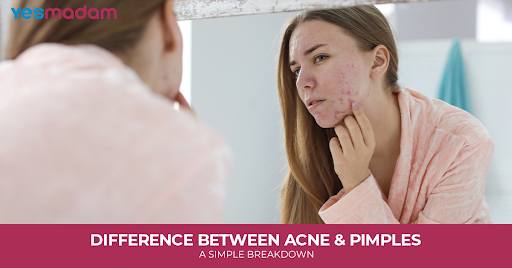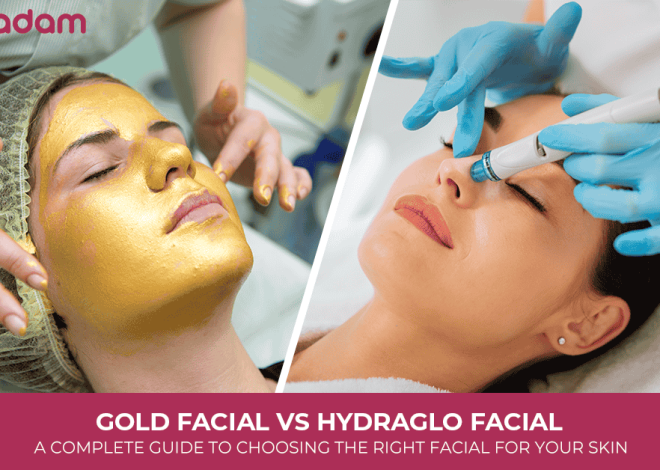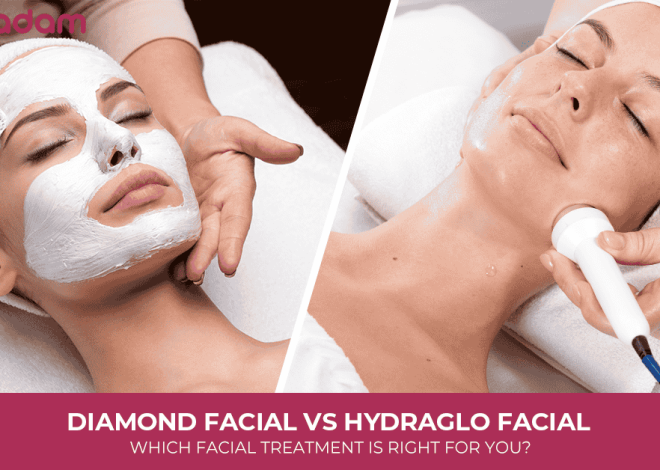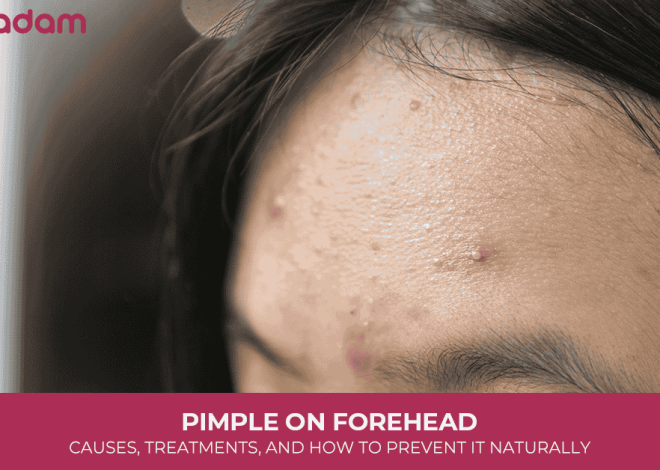
Difference Between Acne and Pimples: A Simple Breakdown
Acne and pimples are the words used interchangeably in skincare, but in reality, both of these are different skin concerns. The striking difference is that acne is a disease, and pimples are one of its symptoms.
This guide on the difference between acne and pimples will help clear the confusion between acne and pimples for effective skincare.
Table of Contents
What is Acne?
Acne is a common skin condition where your skin pores get clogged. Such pore blockages cause blackheads, whiteheads, and other kinds of blemishes like pimples to persist. It mostly impacts the hair follicles and oil glands inside the skin.

What are Pimples?
Pimples occur mainly due to clogged pores, inflamed oil glands, or the excess pimple-causing bacteria present in the skin. They are a type of acne symptom and are often identified by red, small, inflamed bumps on the skin’s surface.
What are The Causes Of Acne vs Pimples?
Before diving deep into the casual diff between acne and pimple and arriving at a definitive conclusion on is acne and pimples the same or not. Knowing the common causes between pimples and acne-prone skin will help you understand the nuances better.
What are the causes of acne?
Some possible acne triggers include:
- Hormonal fluctuations make the skin oilier. These changes might be associated with puberty, menstrual periods, birth control pills, pregnancy, or stress.
- Oily or greasy cosmetic and hair products.
- Specific kinds of medications or drugs (like steroids, testosterone, and estrogen ) and birth control devices might cause acne to worsen further.
- Excessive sweating and humidity. Resting on, touching, or scrubbing the skin frequently.

What Are The Main Causes of Pimples?
Pimples, also known as acne, are primarily caused by a combination of factors, including excess sebum production, clogged pores, bacterial growth, and inflammation.
Here’s a more detailed look at the main causes:
Excess Sebum Production: The sebaceous glands in the skin produce sebum, an oily substance that helps keep the skin moisturized. However, when these glands produce too much sebum, it can mix with dead skin cells and clog pores, leading to pimples.
Clogged Pores: When pores become clogged with sebum, dead skin cells, and bacteria, they can lead to the formation of pimples. These clogged pores can develop into whiteheads (closed comedones) or blackheads (open comedones).
Bacterial Growth: Bacteria, particularly Propionibacterium acnes (P. acnes), naturally live on the skin. When pores are clogged, bacteria can thrive and multiply, leading to inflammation and the development of pimples.
Inflammation: When bacteria multiply and clog pores, the body’s immune system reacts, causing inflammation. This inflammation can lead to redness, swelling, and pain around the pimple.
Hormonal Changes: Hormonal fluctuations, particularly during puberty, menstruation, and pregnancy, can stimulate the sebaceous glands, increasing sebum production and potentially exacerbating acne.
Stress: Stress can also contribute to acne by increasing sebum production and triggering inflammation.
Diet: Certain foods, particularly those high in sugar or processed carbohydrates, may be linked to increased sebum production and inflammation, potentially contributing to acne.
Genetics: Some individuals may have a genetic predisposition to acne.
Cosmetics: Using heavy or oily makeup products can clog pores and contribute to breakouts.
Having a deep understanding of the causes of acne and pimples helps set a clear base for differentiating between the two and ultimately helps clear the prevailing doubt over is acne and pimple same or not.
Main Difference Between Acne and Pimples
A detailed acne and pimple difference can be summed up based on the following parameters:
| Parameter | Acne | Pimples |
| Definition | Acne occurs when hair follicles get clogged with bacteria, oil, and dead skin cells. | A specific type of lesion within acne, characterized by pus and inflammation. |
| Manifestations | Papules , pimples , nodules , cysts , blackheads, and whiteheads. | Raised red bumps with pus filling. |
| Severity | Mild, occasional pimples to severe, persistent breakouts with scarring. | Typically, less severe than other forms of acne lesions, like cysts or nodules. |
| Causes | Genetics, excessive oil production, and hormonal fluctuations. | Dead skin cells, accumulation of oil, and bacteria. |

Effective Tips for Pimple and Acne Management
The acne pimple difference is a key indicator that acne is a disease, and pimples are one of its symptoms. Due to this interconnection, the following are some common preventive measures to effectively manage both these conditions :
Skincare remedies
- Cleanse Face daily: Cleansing your face daily ensures that there is no accumulated dirt or dust, often be the breeding grounds for both pimples and acne.
- Do makeup sparingly: Refrain from using greasy or chemical-laden products that might lead to acne or pimples. But if you want to apply makeup, use non-comedogenic and natural makeup products.
Lifestyle measures
- Use SPF sunscreen: Wear an SPF 30+ sunscreen regularly to protect against harmful UV rays, which can cause redness, inflammation, and itchiness.
- Stay hydrated: Drink around 2 to 4 liters of water every day to flush out toxins from the body and achieve even skin free from pimples or acne.
- Watch your diet: Include healthy diet like fresh fruits, veggies and grains for glowing skin. Processed and junk foods are also root causes for pimples and acne-prone skin.
- Reduce stress: Stress disrupts oil secretion and alters the function of cortisol hormones. So, include yoga and other stress-reducing activities in your routine to decrease cortisol levels.
Ingredient-led remedies
If you have acne and pimples-prone skin, opt for ingredients like :
- Salicylic acid: It reduces sebum secretion and scrubs away surface cells.
- Niacinamide: Helps to reduce visible scars and uneven pigmentation.
- Glycolic acid: Helps to eliminate dead skin cells due to its antibacterial properties.
Treatment-led remedies
Prescription medications like retinoids, antibiotics, and in-office treatments like laser therapy, chemical peels, or microdermabrasion are best for treating stubborn acne. Proper pimple extraction techniques and other spot treatments for pimples, including ingredients like benzoyl peroxide or salicylic acid, might prevent inflammation and promote healing.
Conclusion
Now that you know the difference between acne and pimples, it is important to know about your skin type before you start exploring the treatment for both. In such a scenario, it is recommended to consult with an expert dermatologist and undergo a patch test before the actual course of treatment.
FAQs
Are acne and pimples the same?
The answer is no. Both are different skin issues, even though pimples are known as a prevalent acne symptom.
What is the difference between acne and pimples?
Acne represents a broader skin issue, while pimples are a small part of it.
Can you have pimples but not acne?
Yes. Skin bumps on the face occur due to acne breakouts. But not all bumps are acne.
Which is painful acne or a pimple?
Inflammatory acne, like cystic or nodular acne, tends to be more painful than individual pimples.
Does acne cause pimples?
Yes, acne is a skin issue that might cause pimples, also called whiteheads or blackheads, and other types of lesions.
How do I remove acne and pimples?
A combination of gentle skincare, with no harsh treatments, and potentially using over-the-counter or prescription medications is recommended.
How to stop face acne and pimples?
Apply a gentle cleanser and rinse your face two times a day, stop the urge to touch your face, and don’t squeeze or pop pimples.
Do acne and pimples fade on their own?
Yes, most acne and pimples will fade on their own, generally within a few days or weeks.
Which is worse, acne or pimples?
Acne is a term that implies an ongoing skin condition that’s much more serious, persistent, and often severe than occasional pimples.
Do acne and pimples go away naturally?
Pimples usually resolve within a few days to a couple of weeks. More extensive acne breakouts might take longer.



